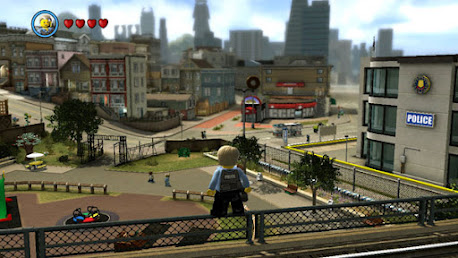Lego City Undercover is the Reason I Play Video Games

I think video games sometimes forget that their job, at heart, is to be fun. Too many of them, especially those churned out by the largest developers, feel as though they’ve been designed by committee. They attempt to do so much and yet end up appealing to nobody. Those seeking a challenge are turned off by how easy they are, and those seeking escape are turned off by how complicated they are. Games want to be bigger, louder, and more complex. But we don’t play games because they’re big and loud and intimidating…we play them because we want to enjoy ourselves. I love Lego City Undercover , because “fun” seems to have been its guiding virtue during development. It positively pulses with charm and possibility. It creates a world that’s an absolute joy to explore. And that’s all it does . Oh sure, you can unlock new vehicles, and switch from costume or costume to unlock new parts of the map. You can find hidden items and compete in races and scale the tallest buildin





